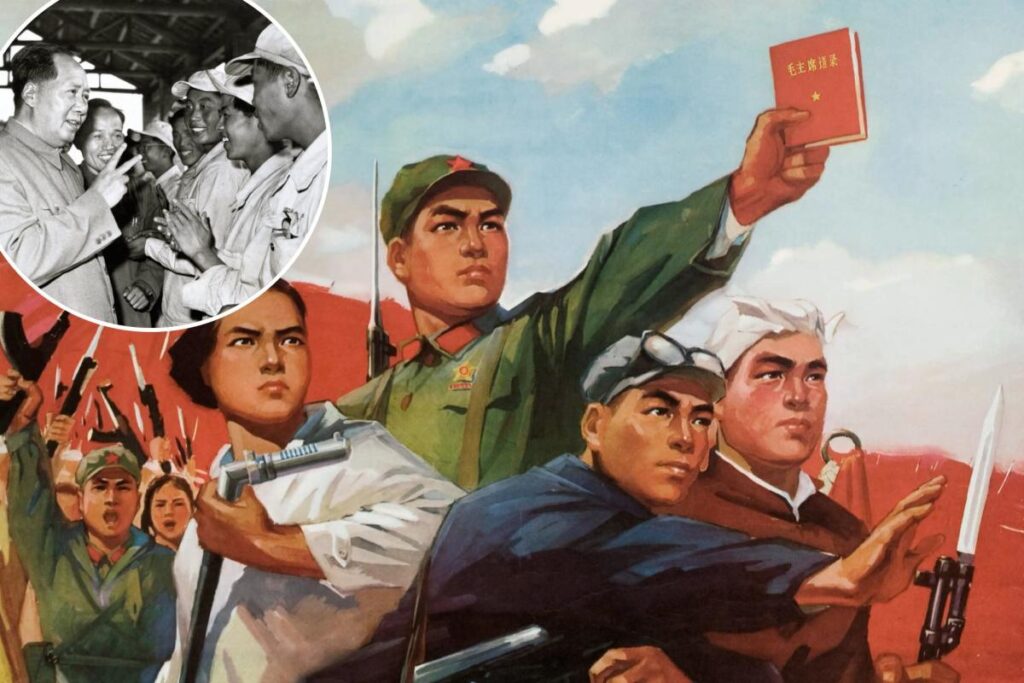In her recent book “Mao’s America: A Survivor’s Warning,” Xi Van Fleet, an anti-communist advocate, warns that contemporary America bears alarming resemblances to China’s Maoist past, particularly during the Cultural Revolution that started in 1966. Drawing from her harrowing experiences in China, where she witnessed the brutal upheaval caused by Chairman Mao Zedong’s policies, Xi emphasizes how society disintegrated amidst state-sanctioned violence. She recalls how education was suspended, and large propaganda posters declared the nation “rotten to the core.” Traditional values, culture, and even individual identities were dismantled in the name of a revolutionary ideology that dictated loyalty to Mao. This period saw citizens turned against one another, friends and family members betraying each other in a chaotic scramble to align themselves with state-approved narratives, embodying an atmosphere of fear, surveillance, and purging.
As a schoolgirl, Xi was horrified to see teachers publicly humiliated in “struggle sessions” and the emergence of the Red Guards—paramilitary groups composed of students who carried out violent acts against those deemed counterrevolutionary. This group was encouraged by Mao to attack societal institutions, engage in the destruction of religious sites, and eradicate cultural relics. The animosity among competing factions of the Red Guards led to violence and even mass killings, reinforcing an environment where betrayal was the currency of survival. Xi’s experiences left deep psychological scars; she struggled with nightmares reflecting the brutality around her, marking a critical betrayal of education and human decency borne from political indoctrination. Feeling robbed of her childhood, she eventually emigrated to the U.S. in search of freedom and opportunities.
In America, Xi embraced the ideals of equality and meritocracy, pursuing a degree and building a family. This American Dream stood in stark contrast to her memories of China. However, the revelation of a Diversity, Equity, and Inclusion (DEI) program at her workplace sparked dismay, as she recognized parallels with her past: the breakdown of social cohesion based on selective classifications akin to those in Mao’s China. Xi critiqued the DEI methodology that apparently labeled her colleagues into “good” and “bad” classes defined by race and gender, offering her a wake-up call. She could not ignore that this was a thinly veiled repetition of anti-ideological sentiments that once justified Mao’s cultural eradication.
Xi’s outspoken criticism of DEI resulted in her dismissal from the job, reinforcing her awareness of the pervasive influence of what she describes as cultural Marxism. As she examined current societal tensions, she noted how individuals in authority manipulated compliance during the COVID-19 pandemic, branding dissenters as threats. Similarly, she highlighted the chaos resulting from the George Floyd incident, framing these as modern manifestations of the same ideological fervor that fueled the Cultural Revolution. The indoctrination of America’s youth through public education systems resonated with her, as she observed parallels in how narratives were shaped to depict America as fundamentally flawed and irredeemably racist.
The unfurling of ideological conformity and suppression of dissent became her chief concerns, echoed in the very fabric of American society. Xi fears that many citizens are oblivious to the dangers thrumming beneath their cultural landscape, akin to a societal sleepwalk towards authoritarianism. She presents her book as a stark warning, trying to alert her fellow Americans to the erosion of freedoms and values that had drawn her to the U.S. in the first place. Xi’s personal history entwines with her broader message, urging readers to recognize and guard against the encroachment of totalitarian ideologies that threaten to undermine the foundations of liberty and individual rights.
“Mao’s America” is not just a memoir but a prescient reflection on the ideological battles playing out in contemporary society. Xi Van Fleet’s life story serves as a reminder of the cost of complacency in the face of rising extremism and the importance of remaining vigilant in the preservation of democratic values. By drawing parallels to her own experiences, she offers a sobering examination of the ideological divisions and the dangers of cultural narratives that seek to rewrite history. The book seeks to compel a national conversation about the lessons we can learn from the past, especially against the backdrop of ongoing cultural polarization. As she highlights the need for a conscious awakening, Xi’s narrative pushes readers to confront difficult realities about the state of their nation and the potential paths ahead.

